Ongoing research and art archive.
A series of installations and assemblages created during the international project and exhibition WE SEE UKRAINE
(was exhibited in Bulgaria and Croatia in 2023-2024)
Since ancient times, the art of gardening has been an action aimed at cultivating a new life, when a human does not dominate in relations with plants, but helps them to come true, thereby creating a future friendly ecosystem around.
Gardening is the art of care, respect, humility, painstaking work and hope.
In times of war, when you are detached from your native land, you do not feel its strength under your feet and the world turns insanely fast moving into the abyss, I choose - gardening. I am planting an intangible, however, a real for me garden of Ukrainian plants and memories of forced migrants associated with them, plants that Ukrainians met abroad, but they clearly remind them of homeland and special moments from their past.









Same plants - deferent countries. Photo-collage is a part of the project.
Ukraine-Germany. Ukraine-Spain. Ukraine-Portugal. Ukraine-Sweden. Ukraine-Ireland. Ukraine-Germany.
This project is the part of research and cultivation of such a "metaphysic garden," an attempt to visualize the strong invisible connections of individuals with the plants of their land, and not only with plants, but also with each other, the environment, past and present. The invisible garden of memories and plants seems rather fragile and ephemeral, but behind the layers of images, thoughts, feelings, smells and words there is a powerful and invisible to the eye infinite rhizome (meaning the botanical term, which was later borrowed by philosophers) - a nonlinear network of roots that has no beginning and end, unites in addition to the roots of trees a lot of living organisms and allows plants to communicate over vast distances, notify of danger, transfer nutrients and…live.
Experiencing radical transformations in the new wartime reality after the full scale russian invasion of Ukraine, many Ukrainians are now going through times of internal restructuring, loneliness, revaluation of senses, but the spiritual and mental rhizome of connections with the land and nation, kind of root network, despite all difficulty, continues to work, fill and give strength.






The project “Invisible Garden. Blooming plants and memories archive” shows this network and human-nature connections not literally, but hidden behind many layers, fragile moments, threads and nodules from which our inner and outer world is woven.
Blending documentary data and research with artistic visualization of memory and forced migration experience, mixing photography, texts, materials and techniques, an image for each plant and memory appears and turns into a page for documentary art archive. Through the metaphor of plants and gardening, we are facing the interweaving of culture, environment, history, people and nature, person and a plant.

Plovdiv. Photo by Evgeni Gondov
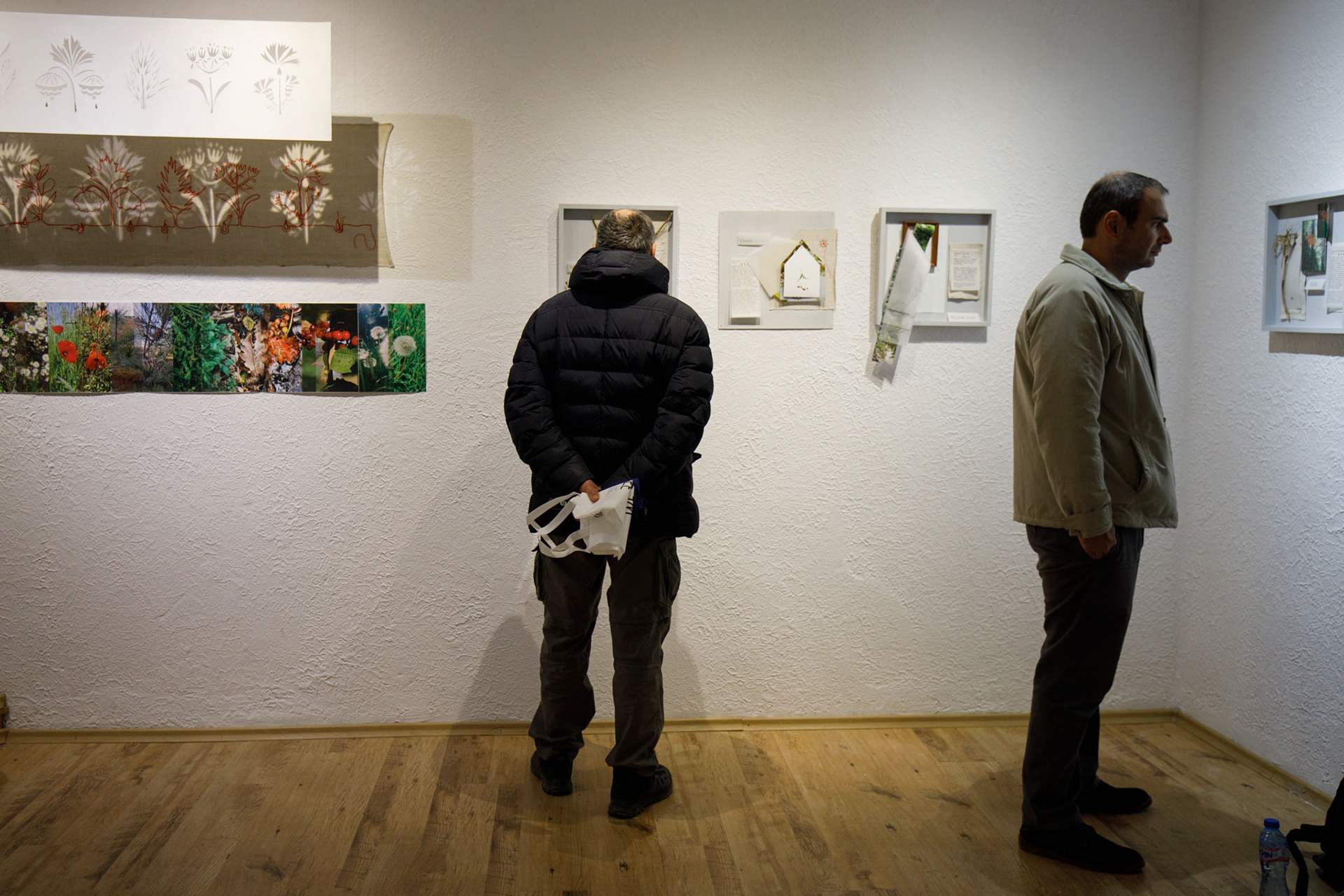
Plovdiv. Photo by Lina Krivoshieva
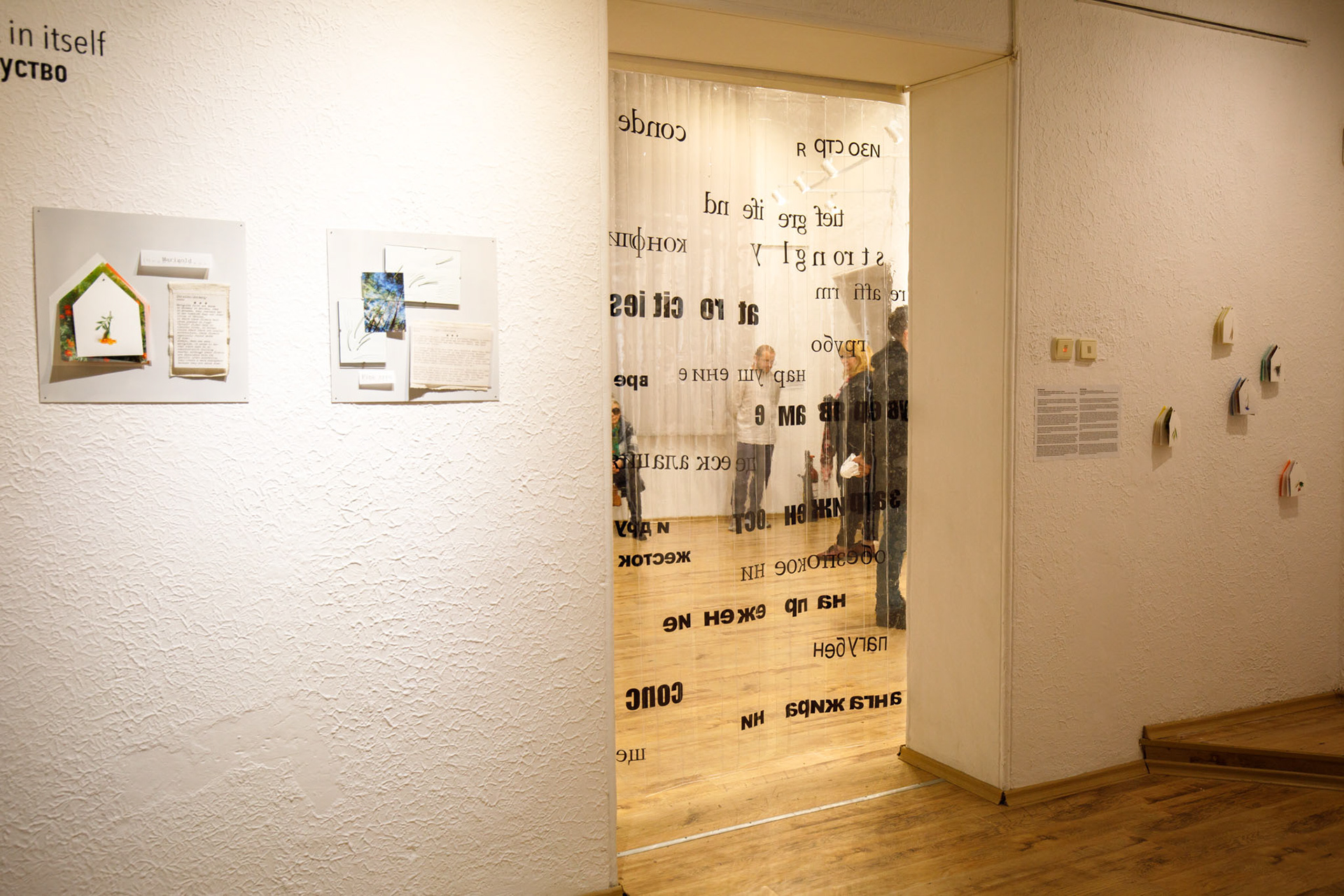
Plovdiv. Photo by Lina Krivoshieva
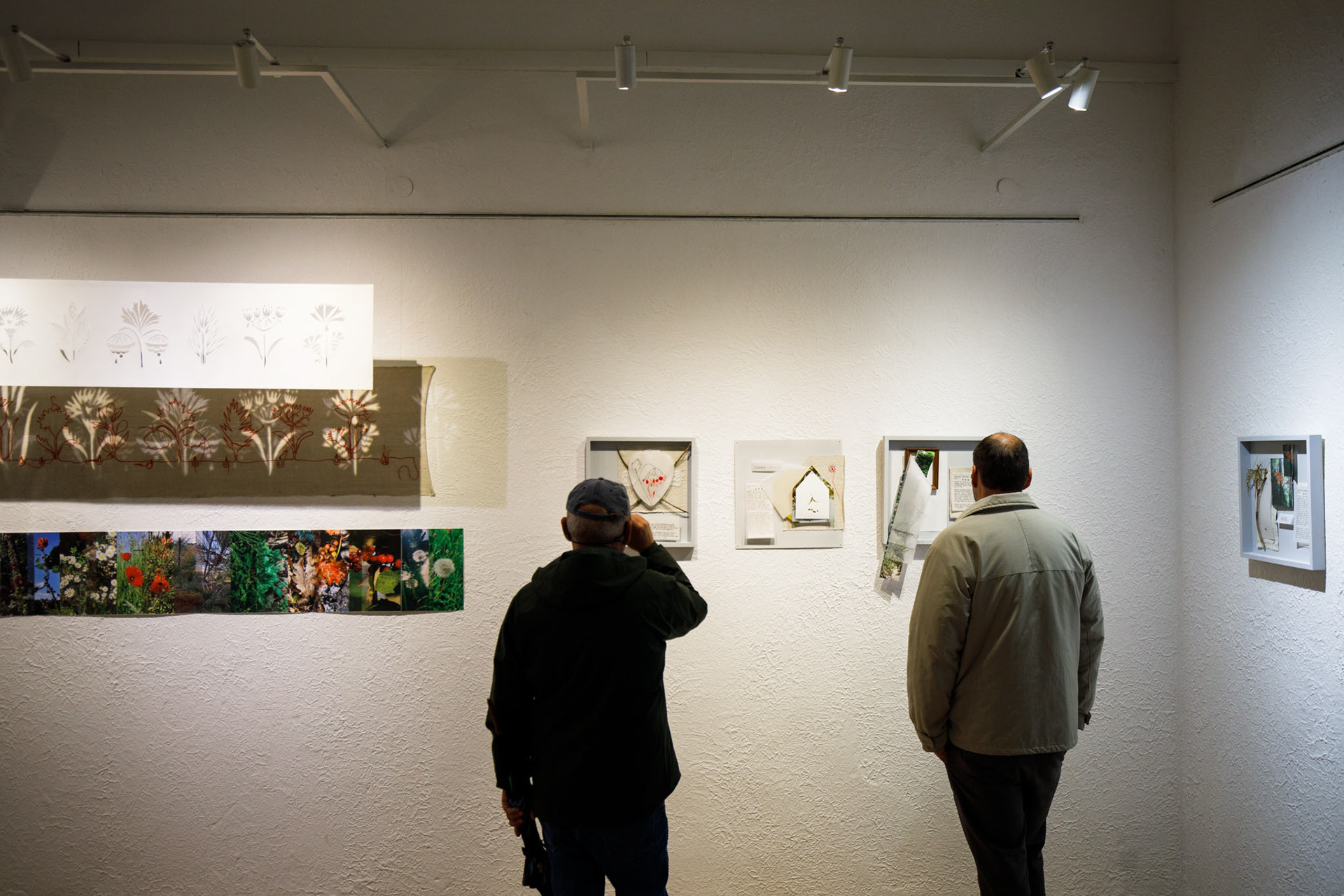
Plovdiv. Photo by Lina Krivoshieva
In the frame of WE SEE UKRAINE exhibition, 9 assemblages with 9 plants and people memories were presented. Here some of the details.








At the beginning of this research, I collected memories of my relatives and close friends who fled the big russian war against Ukraine, which are connected with a specific kind of plant they met abroad and that reminds them of Ukraine.
Here are my memories, my mother's and sister's stories, and the stories of my friends. I use in assemblages and installations photos of plants taken by me in different periods in Ukraine and currently abroad, as well as some pictures of the participants in this project.
I used old, hand-made Ukrainian fabric, dry plants, embroidery, and some texts of Ukrainian poets and folk songs, which are hidden behind the layers of transparent paper and other materials.








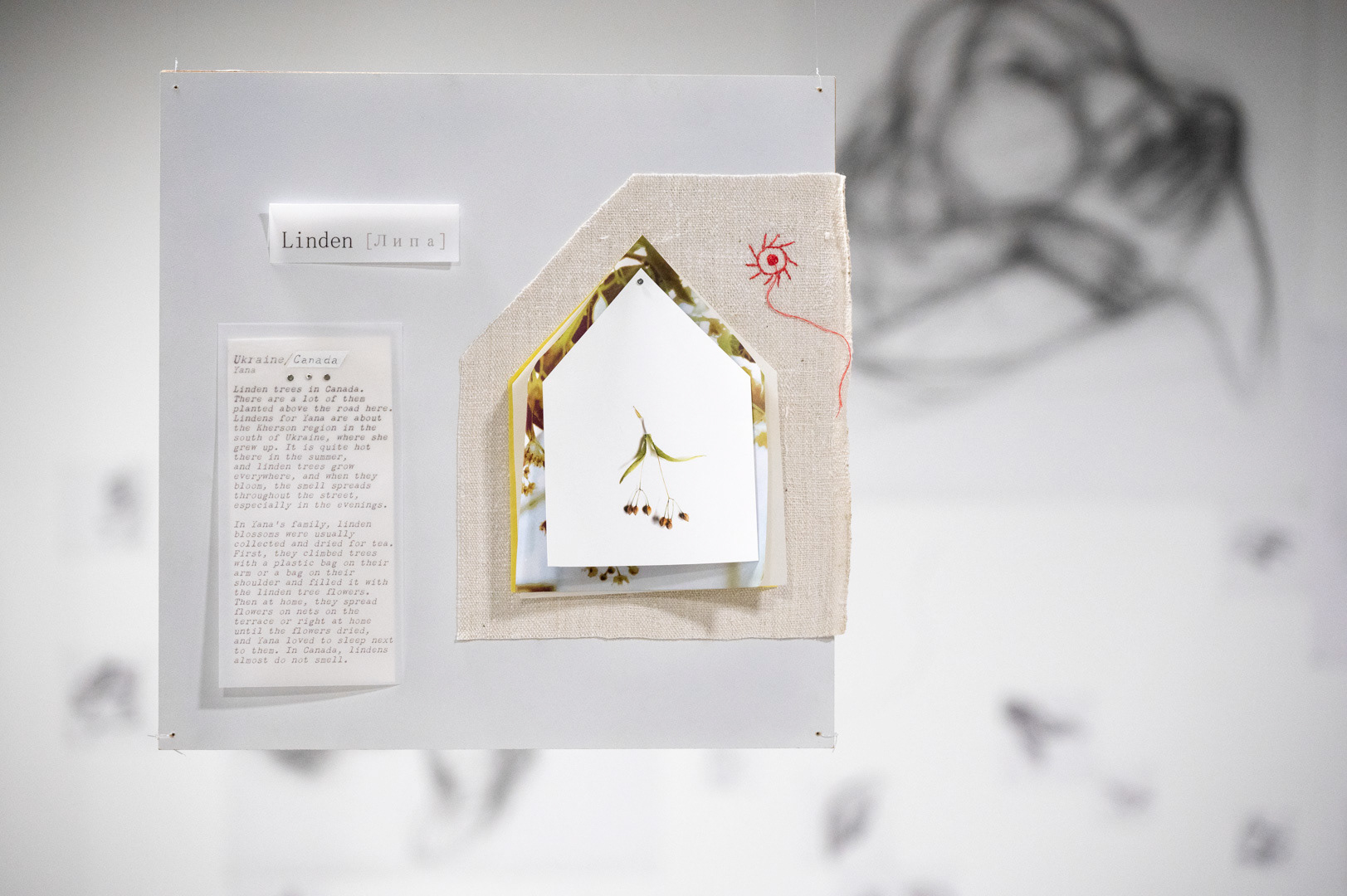
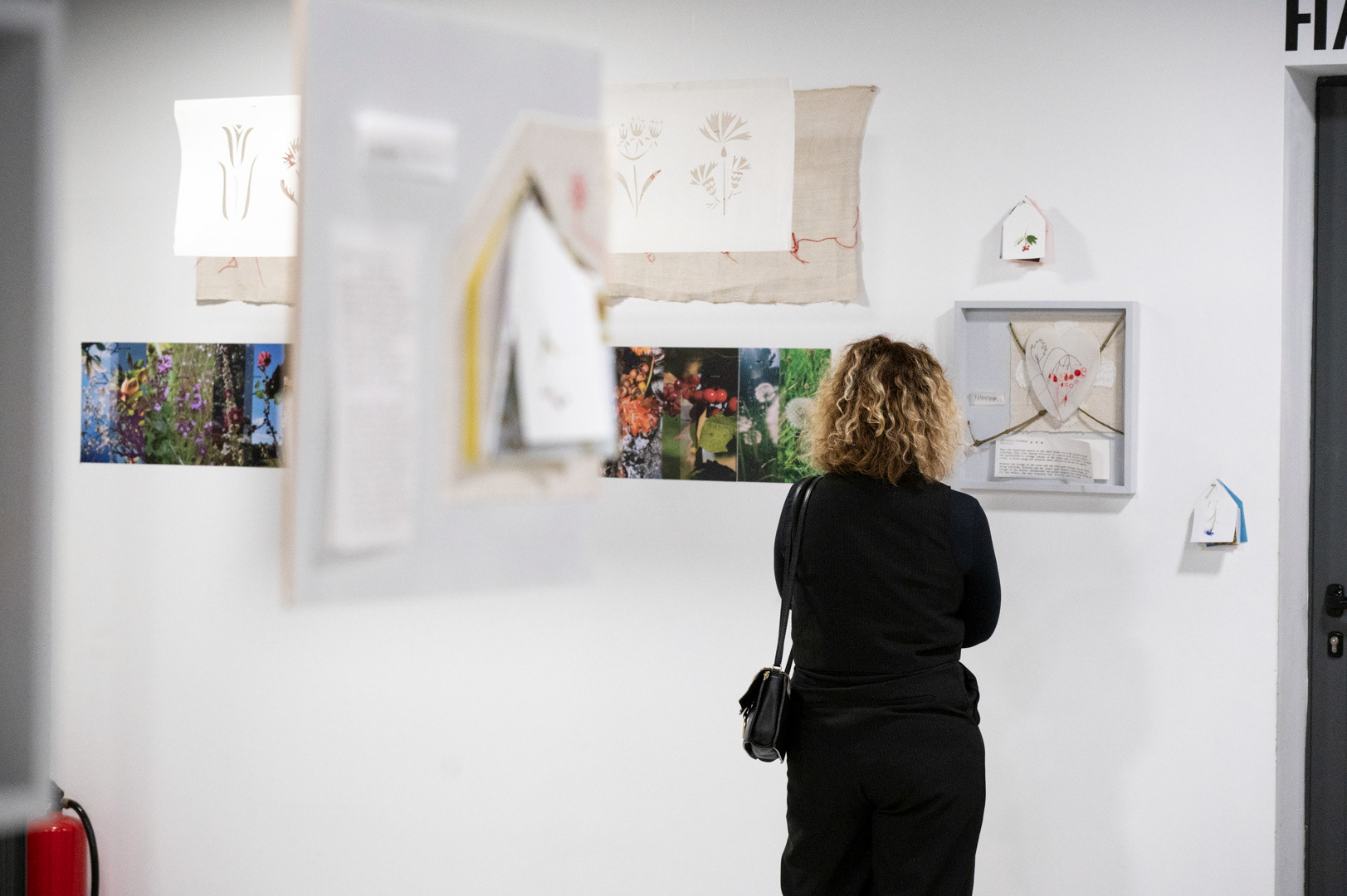
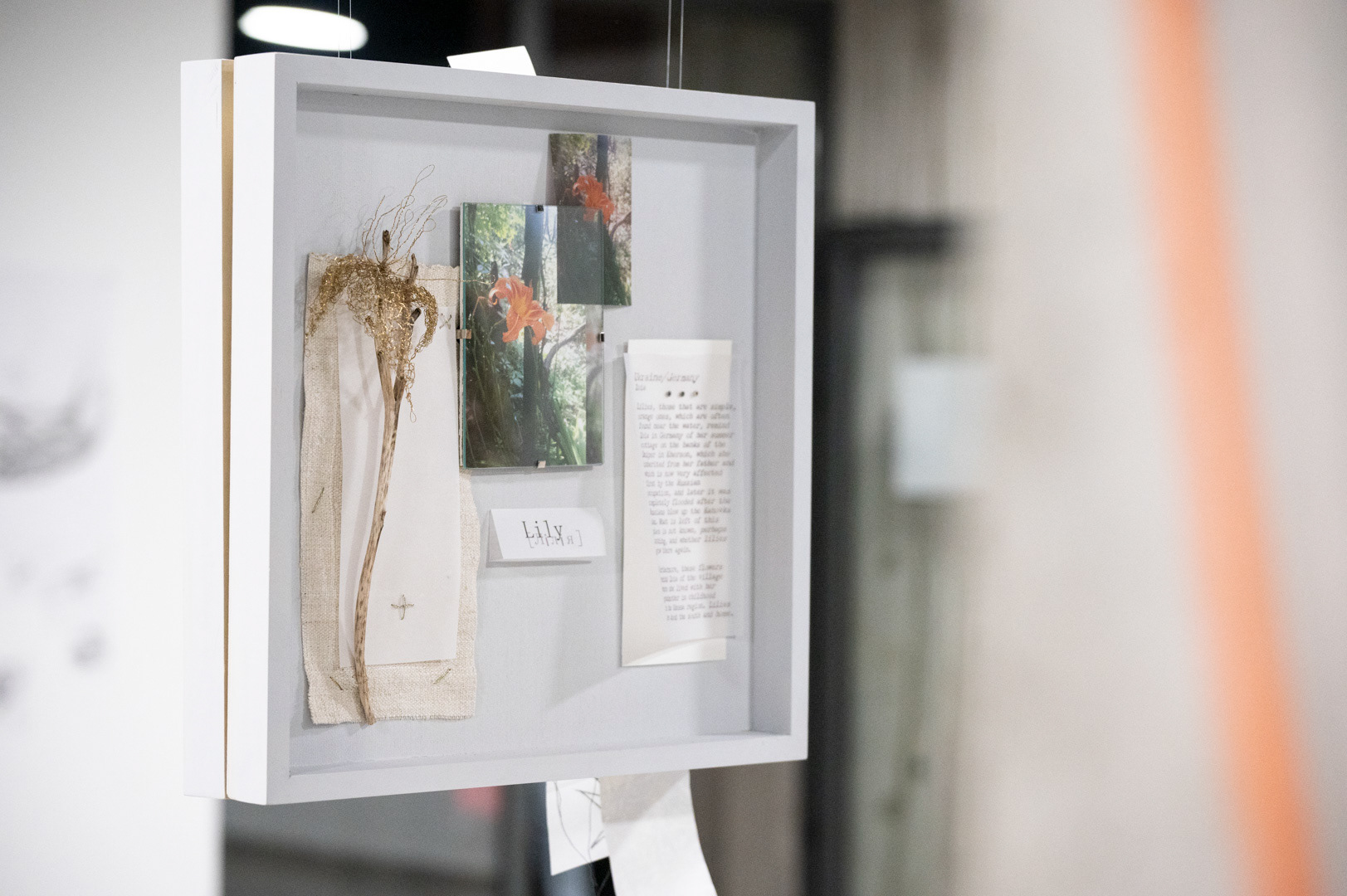
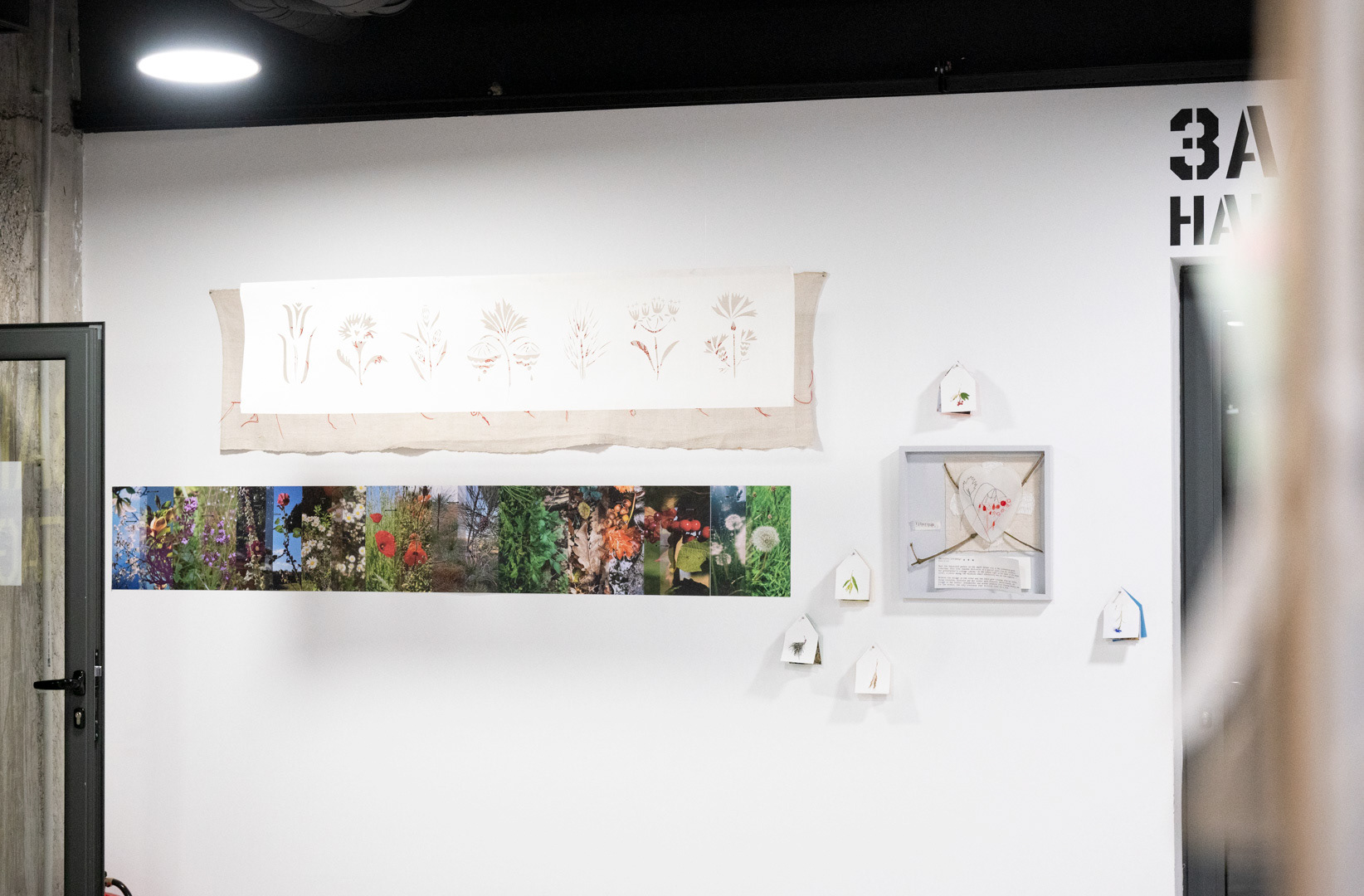
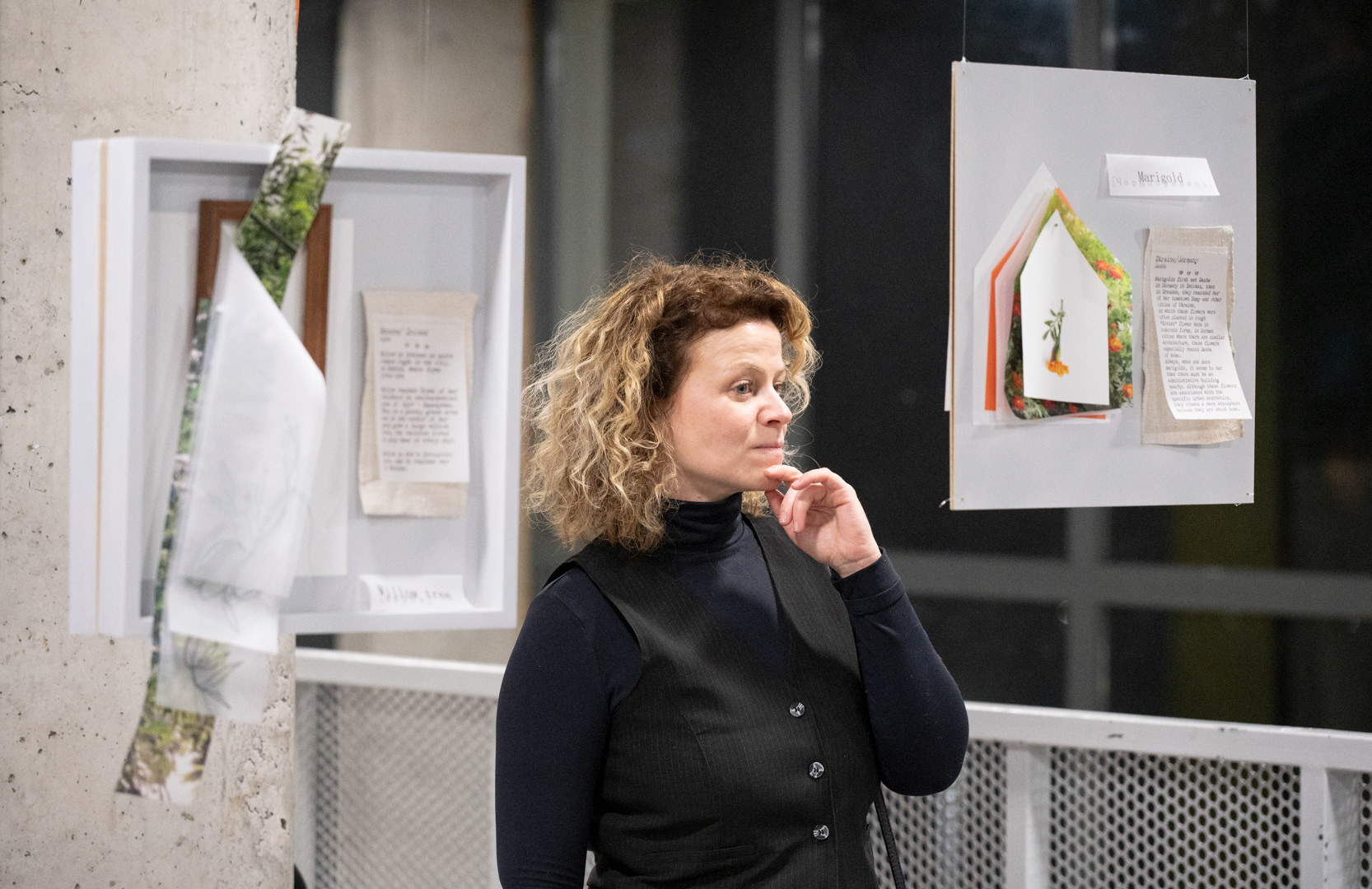

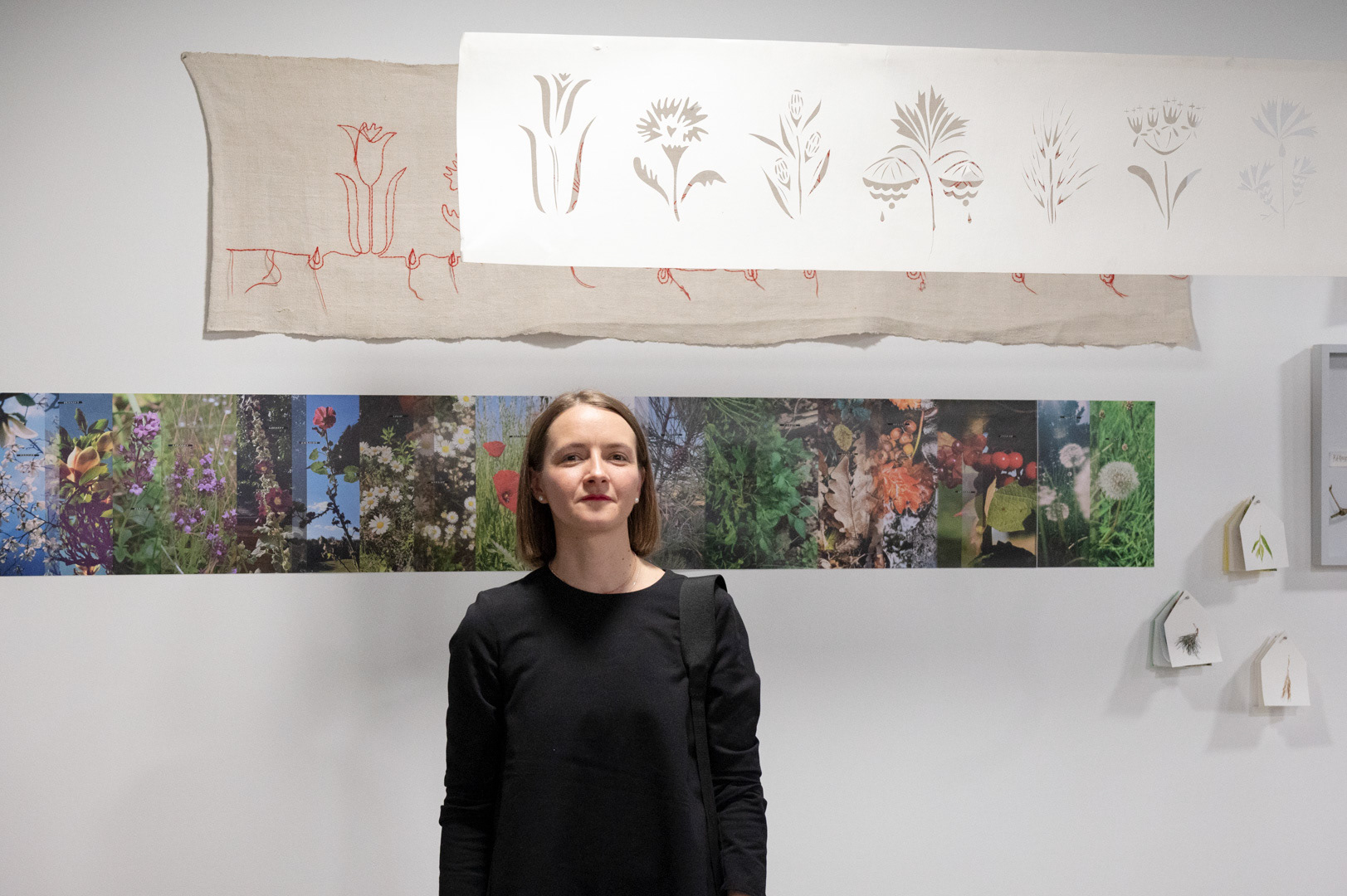
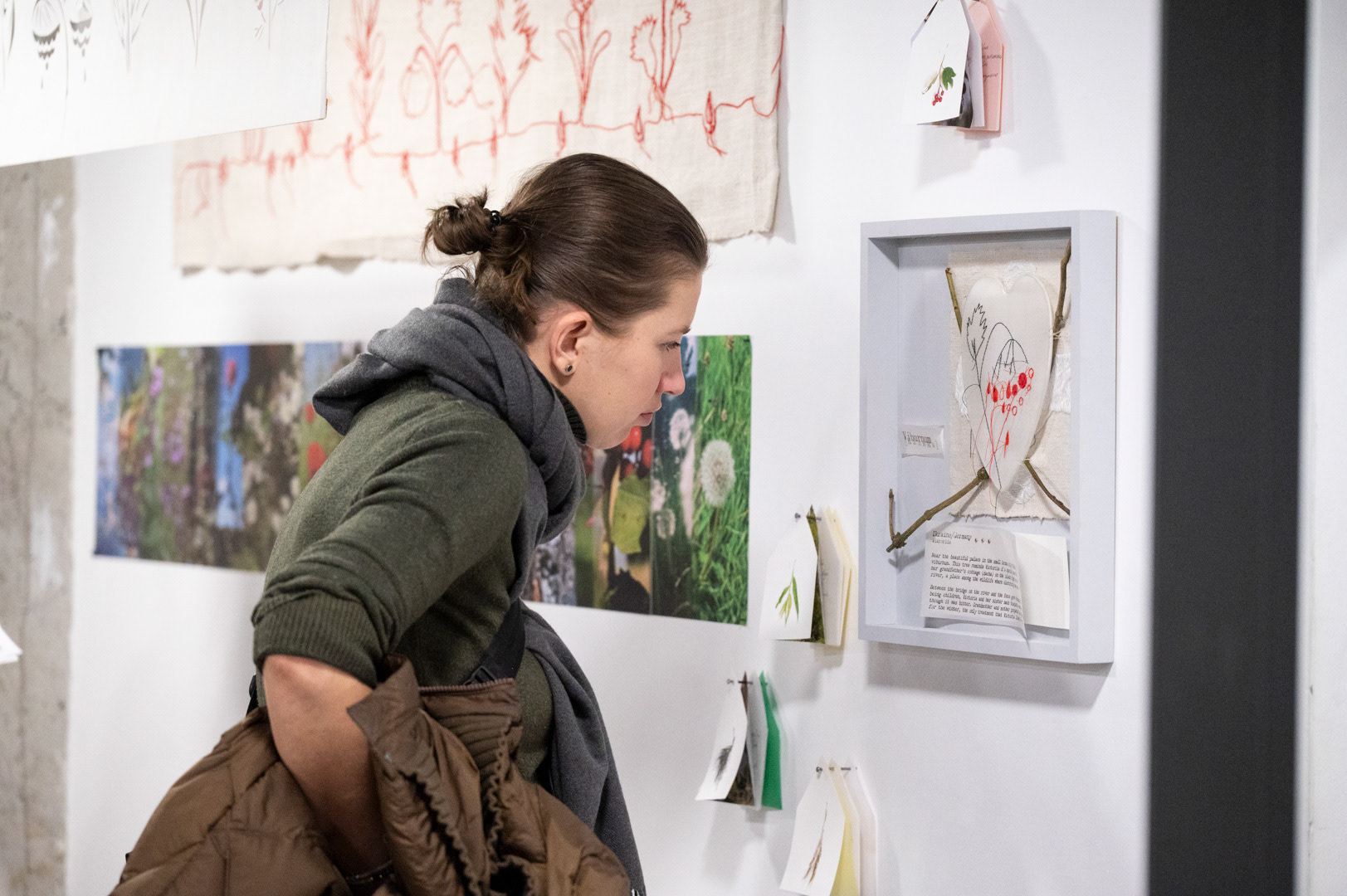
Sofia. 20.02.2024. Photos: Boryana Pandova
The project WE SEE UKRAINE was created with the financial support of the Creative Europe Programme of the European Union and the Bulgarian National Culture Fund.